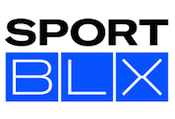|
|
But for sponsors of the Rio Olympics the most important question will not be about sports. It’s the same question that all sponsors of mega events ponder: “Did we get our money’s worth?”
TV sponsors of the Rio Olympics couldn’t have been very happy (no matter what they say for public consumption) when the opening ceremony drew the lowest TV audience since the Athens games in 2004 and had 35% less viewers than the 2012 London games, followed by low ratings on subsequent nights. Also missing in addition to the TV viewers were many world-class athletes. On August 8, the Wall Street Journal reported that “…five of ten top men’s single players, the four highest-ranked golfers and a dozen NBA stars” decided that going for the gold in Rio wasn’t gold enough and skipped the games.
TV sponsors of the Super Bowl couldn’t be very happy (no matter what they say for public consumption) when the half-time entertainment show continually outdraws the actual 12 minutes or so of football play, meaning, perhaps, that there are probably more bathroom breaks during the game when commercials are shown than during the half-time show.
Major TV sponsors of baseball games couldn’t be very happy (no matter what they say for public consumption) when every happening – the announcement of the lineups, the first foul ball, the first cloud over the stadium, etc. has a sponsor.
Sponsor clutter? It’s synonymous with sports broadcasts, which no matter what they say can’t make sponsors very happy
In addition, sponsors of the Olympics couldn’t be very happy that the Rio games were up against what is probably the most media covered presidential campaign in history, limiting the amount of free sponsor publicity.
During my many years of involvement in the most prestigious national and international sports and nonsports marketing programs, I’ve questioned the effectiveness of a marketing program that spends the bulk of its money on mega-sports events and have suggested a more targeted campaign. And there have been marketing studies that also question the effectiveness of the “big bang for your bucks” mega events.
However, “it’s the amount of eyes” theory that advertising agencies have been hawking since I was toddler that still carries the day. But not for all sponsors.
One major corporation that was a leading sports marketer for many years walked away from its long-time sponsorship because it felt that the increase in rights fees was not justified. The client told me that they could use the money for more frequent targeted campaigns.
Another company confided that the only reason they continued to sponsor a mega-event is because they didn’t want their competitor to fill the category slot. Eventually this company also dropped its sponsorship.
Since sponsors and sports entities have become kindred spirits, there have been a number of instances when sponsors had to have remorse for the association but kept their sorrows to themselves: Social media promotions were cut short during the Sochi games because of protests against Russia’s human rights abuses. The misbehavior of sponsored athletes is a constant saga but sponsors largely keep their disappointment in-house.
On a personal basis, I never chose an athlete as a spokesperson before vetting him with the people who know the athlete’s behavior best – the beat sports writers, definitely not the athlete’s agent. (But it takes personal relationships and trust for the beat writers to provide character flaws in athletes that might infringe on PR campaigns.)
If there was a gold medal for Olympic sponsors I would give it to Kellogg, a company whose actions should be the prototype for sponsors. Good for Kellogg when it dropped its sponsorship of Michael Phelps in 2009 for being photographed with a bong. "Michael's most recent behavior is not consistent with the image of Kellogg,” a spokeswoman for the company said in a statement.
Kellogg recently made public its concern about the handling of sexual abuse allegations by USA Gymnastic. “We are deeply troubled by the report. We have expressed our concerns to USAG, and we will continue to watch this situation closely,” Kellogg emailed USA TODAY. The statement appeared in a major story criticizing the USAG published on August 21.
Sponsors couldn’t have been happy when swimmers misbehavior caught the attention of Brazilian law officials and two swimmers were removed from an airplane as they attempted to depart. (If brands sponsored USA Swimming to get international coverage, they certainly got their money’s worth.) So much for athletes as role models, but that’s nothing new. It’ll be interesting to see the response of all sponsors who use athletes to promote their goods, which position them as role models regardless of what athletes say.
The are different levels of athletes’ misbehavior. Not all misbehavior warrants that athletes’ career should be curtailed with a lifetime sports ban. The ban should be that brands will not use the athlete in TV commercials, often seen multiple times by impressionable or at-risk viewers. Corporate sponsors should reward the good, not the bad. But too often companies continue to sponsor athletes who engage in activities that they would not condone in their own children.
Of course, not all sponsors’ remorse is confined to athlete’s unsportsmanship activities, as the Rio games have shown. Golf returned to the Olympics for the first time since 1904, but the Coca-Cola-sponsored golfer Jordan Spieth decided not to compete and highly-touted swimmer Missy Franklin didn’t come close to repeating her four gold medal performance in the 2012 Olympics.
The many negative stories emanating from the Rio games – robberies, an IOC boxing official being arrested for ticket scalping, health concerns, U.S. swimmers misbehavior receiving major continuous coverage. – all reduced the media budget that might have been given to sponsors’ promotions.
But one negative story, as usual, got scant media coverage: Israeli athletes being insulted by Arab athletes. It happens at every Olympics. And as usual, neither the IOC or sponsors said nothing.
Sponsors should also take note of an August 18 story in the New York Times Business Day section. It reported that Donald Trump has received the equivalent of around $4.3 billion in media coverage compared to Hillary Clinton’s $2.6 billion. Nevertheless, as we know as of this writing, Trump is trailing Clinton by a wide margin. Bad news for PR firms that tell clients that news coverage is more believable to consumers than ads; good news for advertising agencies, which can point to the Clinton campaign that good advertising works.
But one aspect of sports sponsorships remains constant: Sponsors say for public consumption that they are always happy with the results, even when they are not. Even when they decide to terminate sponsorship agreements reasons given are something like, “We’re moving in another direction.” Question? If the benefits of sports marketing were so great, why would they be “moving in another direction?”
So the question is, why do PR and advertising agencies eagerly suggest mega sporting events to clients? My guess. Coming up with new or unique promotions are difficult. Sports promotions are easy. There are already products in place to latch onto.
* * *
Arthur Solomon, a former journalist, was a senior VP/senior counselor at Burson-Marsteller, and was responsible for restructuring, managing and playing key roles in some of the most significant national and international sports and non-sports programs. He now is a frequent contributor to public relations publications, consults on public relations projects and is on the Seoul Peace Prize nominating committee. He can be reached at [email protected].



 Brunswick Group handles Endeavor, which has launched a review of strategic alternatives at the sports and entertainment combine as CEO Ari Emanuel believes Wall Street undervalues his company.
Brunswick Group handles Endeavor, which has launched a review of strategic alternatives at the sports and entertainment combine as CEO Ari Emanuel believes Wall Street undervalues his company. MWWPR has been retained by SportBLX to lead communications for the launch of a platform that allows fans and investors to own shares of unique assets in sports.
MWWPR has been retained by SportBLX to lead communications for the launch of a platform that allows fans and investors to own shares of unique assets in sports. DraftKings is betting on Donald Trump-connected Ballard Partners to help it achieve its economic development and regulatory relief goals in Washington. (1 reader comment)
DraftKings is betting on Donald Trump-connected Ballard Partners to help it achieve its economic development and regulatory relief goals in Washington. (1 reader comment) On November 15, “Ford v Ferrari” will roar into theaters, packing a publicity boost for two great global auto brands right on the marquee. Here's a Top Ten list of films in which a brand played a starring role. (1 reader comment)
On November 15, “Ford v Ferrari” will roar into theaters, packing a publicity boost for two great global auto brands right on the marquee. Here's a Top Ten list of films in which a brand played a starring role. (1 reader comment) Steven Spielberg’s Amblin Partners has brought on Dan Berger as executive vice president and head of communications.
Steven Spielberg’s Amblin Partners has brought on Dan Berger as executive vice president and head of communications.


 Have a comment? Send it to
Have a comment? Send it to 
No comments have been submitted for this story yet.